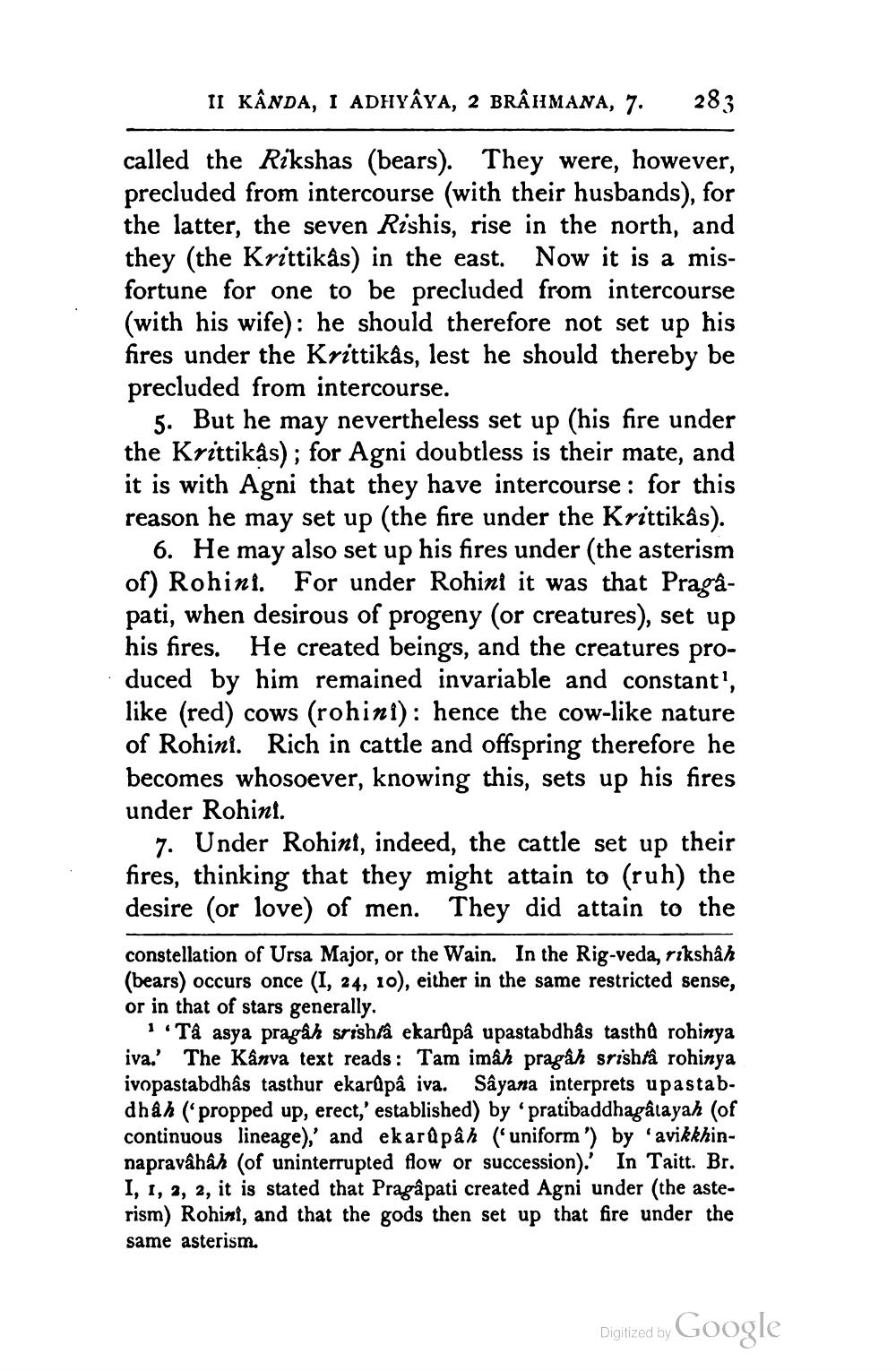________________
II KÂNDA, I ADHYÂYA, 2 BRÂHMANA, 7.
283
called the Rikshas (bears). They were, however, precluded from intercourse (with their husbands), for the latter, the seven Rishis, rise in the north, and they (the Krittikås) in the east. Now it is a misfortune for one to be precluded from intercourse (with his wife): he should therefore not set up his fires under the Krittikas, lest he should thereby be precluded from intercourse.
5. But he may nevertheless set up (his fire under the Krittikås); for Agni doubtless is their mate, and it is with Agni that they have intercourse : for this reason he may set up (the fire under the Krittikas).
6. He may also set up his fires under the asterism of) Rohini. For under Rohini it was that Pragapati, when desirous of progeny (or creatures), set up his fires. He created beings, and the creatures produced by him remained invariable and constant', like (red) cows (rohini): hence the cow-like nature of Rohini. Rich in cattle and offspring therefore he becomes whosoever, knowing this, sets up his fires under Rohini.
7. Under Rohini, indeed, the cattle set up their fires, thinking that they might attain to (ruh) the desire (or love) of men. They did attain to the
constellation of Ursa Major, or the Wain. In the Rig-veda, rikshâh (bears) occurs once (I, 24, 10), either in the same restricted sense, or in that of stars generally.
1.Tå asya pragâh srishfâ ekarQpå upastabdhås tasthû rohinya iva.' The Kanva text reads : Tam imâh pragåh srishtâ rohinya ivopastabdhâs tasthur ekarapâ iva. Sâyana interprets upastabdhåh (propped up, erect,' established) by pratibaddhagålayah (of continuous lineage),' and ekarūpâh (uniform') by 'avikkhinnapravâhâh (of uninterrupted flow or succession). In Taitt. Br. I, 1, 2, 2, it is stated that Pragâpati created Agni under (the asterism) Rohini, and that the gods then set up that fire under the same asterism.
Digitized by Google




